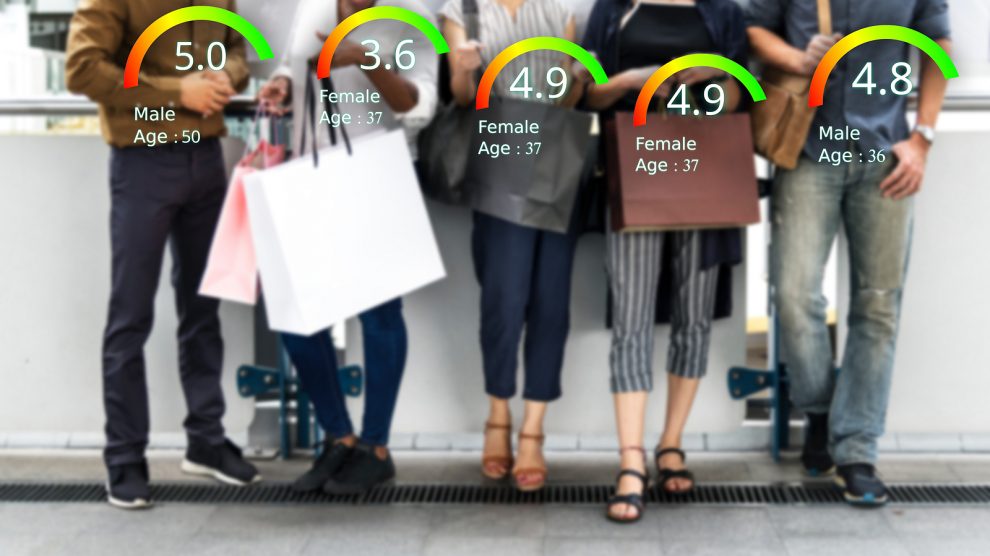The European Commission has put forward proposals that would regulate the use of artificial intelligence across the EU, and which would forbid the use of so-called “social scoring” technology such as that already deployed in much of China.
The European Commission has proposed a set of new rules aimed at turning Europe into a global hub for the trustworthy, ethical development and deployment of artificial intelligence (AI).
The new rules would forbid the use in the EU of so-called “social scoring” technology such as that already deployed across much of China.
- Not using AI in healthcare will soon be malpractice
- Romania is running out of people to vaccinate, as supply exceeds demand
- International trade policy has the opportunity to lead the digital transformation
The Commission is hopeful that a combination of the first-ever legal framework on AI and a new coordinated plan with member states will guarantee the safety and fundamental rights of people and businesses, while strengthening AI uptake, investment and innovation across the EU.
“When it comes to artificial intelligence, trust is a must, not just something nice to have,” says Margrethe Vestager, the Commission’s executive vice president. “With these landmark rules, the EU is spearheading the development of new global norms to make sure AI can be trusted. By setting the standards, we can pave the way to ethical technology worldwide and ensure that the EU remains competitive along the way. Future-proof and innovation-friendly, our rules will intervene where strictly needed: when the safety and fundamental rights of EU citizens are at stake.”
The Commission wants the new AI regulation to make sure that Europeans can trust what AI has to offer, with proportionate and flexible rules addressing the specific risks posed by AI systems.
According to European Commissioner for the Internal Market Thierry Breton, “AI is a means, not an end. It has been around for decades but has reached new capacities fueled by computing power. This offers immense potential in areas as diverse as health, transport, energy, agriculture, tourism or cyber security.
“It also presents a number of risks. These proposals aim to strengthen Europe’s position as a global hub of excellence in AI from the lab to the market, ensure that AI in Europe respects our values and rules, and harness the potential of AI for industrial use.”
Under the new rules, AI systems considered a clear threat to the safety, livelihoods and rights of people – classed as “unacceptable risk” will be banned completely.
These include AI systems or applications that manipulate human behaviour to circumvent a user’s free will, such as toys using voice assistance to encourage dangerous behaviour in minors, as well as Chinese-style systems that allow “social scoring” by governments.
Risks classed as “high” will be subject to strict obligations before they can be put on the market. These include educational or vocational training that may determine access to education and the professional course of someone’s life – such as AI scoring of exams, law enforcement that may interfere with people’s fundamental rights, and migration, asylum and border control management – such as the verification of the authenticity of travel documents.
In such “high” risk cases, governments will need to carry out adequate risk assessments and put in place mitigation systems, including appropriate human oversight measures to minimise risk.
European excellence in AI
The European Commission also wants to strengthen Europe’s position in human-centric, sustainable, secure, inclusive and trustworthy AI.
To remain globally competitive, the Commission says that it is committed to fostering innovation in AI technology development and use across all industries, in all member states.
The Commission wants to create conditions for AI’s development and uptake through the exchange of policy insights, data sharing and investment in critical computing capacities, as well as fostering AI excellence “from lab to market” by setting up a public-private partnership, building and mobilising research, development and innovation capacities, and making testing and experimentation facilities as well as digital innovation hubs available to SMEs and public administrations.
To do so, its new coordinated plan proposes concrete joint actions for collaboration to ensure all efforts are aligned with the European Strategy on AI and the European Green Deal, while taking into account new challenges brought by the coronavirus pandemic.
It puts forward a vision to accelerate investments in AI, which can it says benefit the recovery. It also aims to spur the implementation of national AI strategies, remove fragmentation, and address global challenges.
The proposals now need to be approved by the European Parliament and by member states.
Unlike many news and information platforms, Emerging Europe is free to read, and always will be. There is no paywall here. We are independent, not affiliated with nor representing any political party or business organisation. We want the very best for emerging Europe, nothing more, nothing less. Your support will help us continue to spread the word about this amazing region.
You can contribute here. Thank you.




[…] EU proposes new AI rules that would ban China-style ‘social scoring’ […]
[…] EU proposes new AI rules that would ban China-style ‘social scoring’ […]